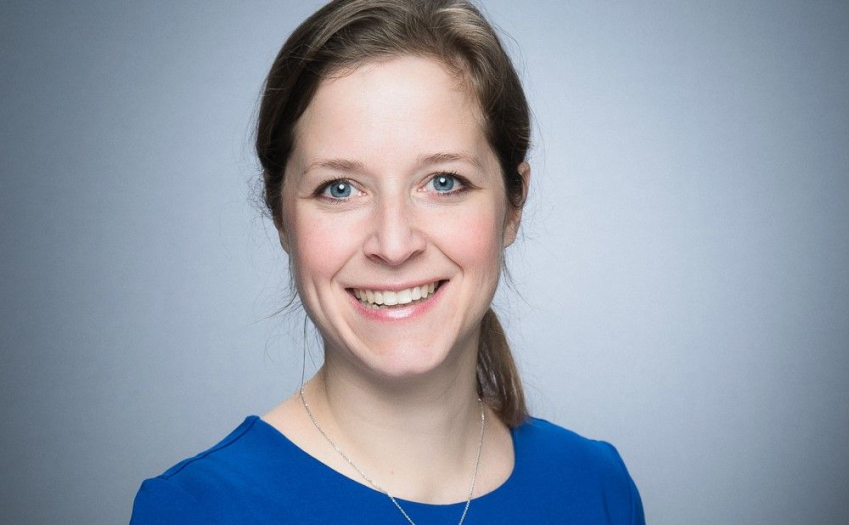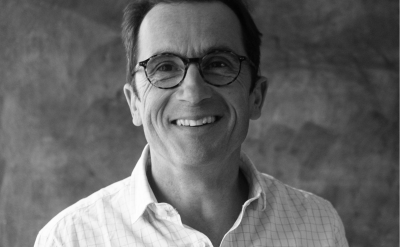News

Maéva Donlin Carion, SK 2006: “New York is everything, right away!”
Compliance is an essential pillar in the protection of banks and their customers. Maeva Donlin, Director Head of OFAC Sanctions Training for BNP Paribas in New York, presents her background and tells us about her demanding job
In 2014, American regulators fined BNP Paribas nearly 9 billion dollars (7.9 billion euros) for violating U.S. embargoes against several countries, such as Sudan, Iran and Cuba. As a result, the bank committed to a full review of its compliance procedures and policies. Among other measures, this involved the creation in NYC of a department called Group Financial Security U.S., responsible for ensuring the Bank’s compliance with U.S. laws pertaining to international economic sanctions. Maeva Donlin joined this new department at its inception in 2014 and plays a key role in developing and implementing training programmes on legislative and regulatory requirements and on adhering to ethical standards and the bank’s internal policies. The department addresses critical issues:
“Compliance is a type of risk prevention, because it allows banks to protect themselves against possible fines among other things. International economic sanctions are a tool used by governments and international organisations such as the UN to prevent or avoid risks perceived as a threat to the security of a nation, or to enforce agreed standards in international relations. There were ten of us in the department in 2014, and today there are close to 90 of us,” explains the young 35-year-old Frenchwoman. “My team offers several types of training: online via e-learning, of course, with quizzes to confirm learning, but also webinars and face to face interaction in the form of conferences run over several days...”
BNP Paribas must be exemplary vis-à-vis the American regulators and is currently on probation - a real sword of Damocles for this major French bank employing 200,000 people worldwide, including 3,000 in the United States alone.
“In 2015 we launched the first training course via e-learning, on the topic of international economic sanctions. This was mandatory training for all Group employees and our efforts paid off, since 96% of employees passed the final quiz. That’s a great result! Over the last few years there have been so many colossal fines imposed by American regulators on European companies like Alstom, Crédit agricole, Total, HSBC, Deutsche Bank, Commerzbank and others"
“To be sure I don’t miss anything that could be detrimental to our activities, I have to keep my eyes peeled on what’s going on outside and be proactive rather than reactive,” says Maeva Donlin. “There are so many legal aspects involved, but that’s part of what makes the subject so interesting! I read a huge amount of administrative documents and articles on the subject, I attend webinars and round-tables... It’s a very demanding job insofar as we’re in a constantly shifting industry and are always being challenged by the business itself, by management and by the regulators.”
The young mother of three girls took her first steps in this booming profession during a work placement while she was studying at EAI Tech in Nice (now SKEMA Business School’s BBA programme). The fourth child of seven, of which 6 are SKEMA graduates, she joined the business school after completing her Bac (French high school diploma) and suffering a “big setback at the end of her first year of preparatory classes for business school, due in particular to my lack of ability in English; which is quite ironic when you think about it.” She then spent 6 months at Tulane University in New Orleans as an exchange student. “After my exchange programme, I joined the Compliance Department at Crédit Agricole Paris for my final year internship. The head of global compliance took me under his wing and gave me the opportunity to extend my internship by 6 months in New York; it was a fantastic opportunity.”
Maeva Donlin did a brilliant job over there: “implementing an e-learning course on compliance culture. We launched an internal communication campaign on the subject. At the time, in 2005, few employees were familiar with ethical issues and risk prevention; it was a rather tacit subject at the time. So it was important for this new e-learning programme to show employees what to do in order to be compliant, but also for them to complete the assessment test at the end of the mandatory training, because Management wanted to achieve a 100% success rate.”
She was then approached by internal auditing for a possible position, but she didn’t have the required postgraduate qualifications. “Even though the local American teams felt that I had proven my abilities, the French custom of regulating and pigeonholing people based on educational qualifications caught up with me… So I returned to France, to Nice, to SKEMA Business School, to complete a specialised Master’s programme in International Wealth Engineering and Asset Management (IGIP). Since Crédit Agricole Provence Côte d’Azur had a partnership agreement in place for this programme, I was able to volunteer in Luxembourg at Crédit Agricole Luxembourg, Private Banking to complete my Master’s degree.”
The 2008 crisis delayed the young newlywed’s career plans for a little while. After obtaining her Green Card, she joined Crédit Agricole in New York as an IT consultant, working as a Project Manager.
“I like the American style of management”
“I still remember my first day at the office in New York: it was like being in a movie! People just kept bringing me files and I ended up disappearing behind the piles that had built up on my desk. That day my manager warned me: 'I’m not going to ask you where your limits are; I’ll work them out for myself.' He didn’t know yet that I had no limits! (laughs) I did end up getting through all the files. It was a very demanding environment but I like the American style of management. In general, Americans are trusting, delegate and don’t constantly check up on you - the opposite of my brief experience in France. But there is no safety net!"
Her relentless hard work earned her an internal job offer to work as head of the securitization system “Obviously I was interested in the challenge, because no one so far had managed learn it inside out. I don’t have an engineering degree, but I trained myself on the technical aspects without too much trouble. In the States, once again, people tend to judge you more based on your level of commitment and your results than on your education. It’s motivating!”
In 2014, Maeva joined the BNP Paribas group: “I circled back to my first love: compliance. I’ll admit, I’m rather determined (or stubborn?!) by nature, and that helps in my daily life here in New York. And I also have an extraordinary husband! New York is a city that really suits my personality, because I want everything, right away: I’m hungry for knowledge and for challenging myself, but also for accepting challenges, climbing the career ladder while also taking care of my family - the whole package! (laughs) I don’t think I ever would have been given the same responsibilities in France. I see it often when I travel to Paris 6 or 7 times a year; these are often the most difficult work sessions for me, because people are quick to judge based on appearances. One time, a person I was training shouted out asking if I wasn’t a little too young to be doing this job... whereas here people congratulate me on my work and what I’ve accomplished. I’ve definitely earned the respect of my manager and peers.”
Maeva is open to all opportunities, so doesn’t know if she will spend her whole life in New York. “Life isn’t necessarily too hard here; it’s just very expensive”, she says with a smile, having been granted American citizenship in 2014.
Always set the example
“I don’t know what the future has in store for me, but moving up the career ladder so quickly in New York had nothing to do with chance. Every time I’m given a new assignment, I tell myself I’m not going to pull it off. But once I’m caught up in the motion, I give 100% of myself and, curiously, the more the challenges are difficult the more I want to rise to them and push my own limits. I know that nothing should ever be taken for granted, but I ‘m making the most of the current exposure my job affords me, and using it to continue progressing and to build relationships with my colleagues here at BNP Paribas and elsewhere. To me, the most important thing is to always set the example as an individual, by respecting each of the people I have the good fortune to work with. I personally think it is important to use one’s emotional intelligence at work, because self-respect and respect for others, teamwork and collaboration are values that unite people and pay off in the long term. To prove my point: in 2014, it was a former Crédit Agricole colleague I’d known 8 years earlier who offered me the opportunity to join him!”
Interview by Marie-Parlange (lepetitjournal.com) for SKEMA Alumni




